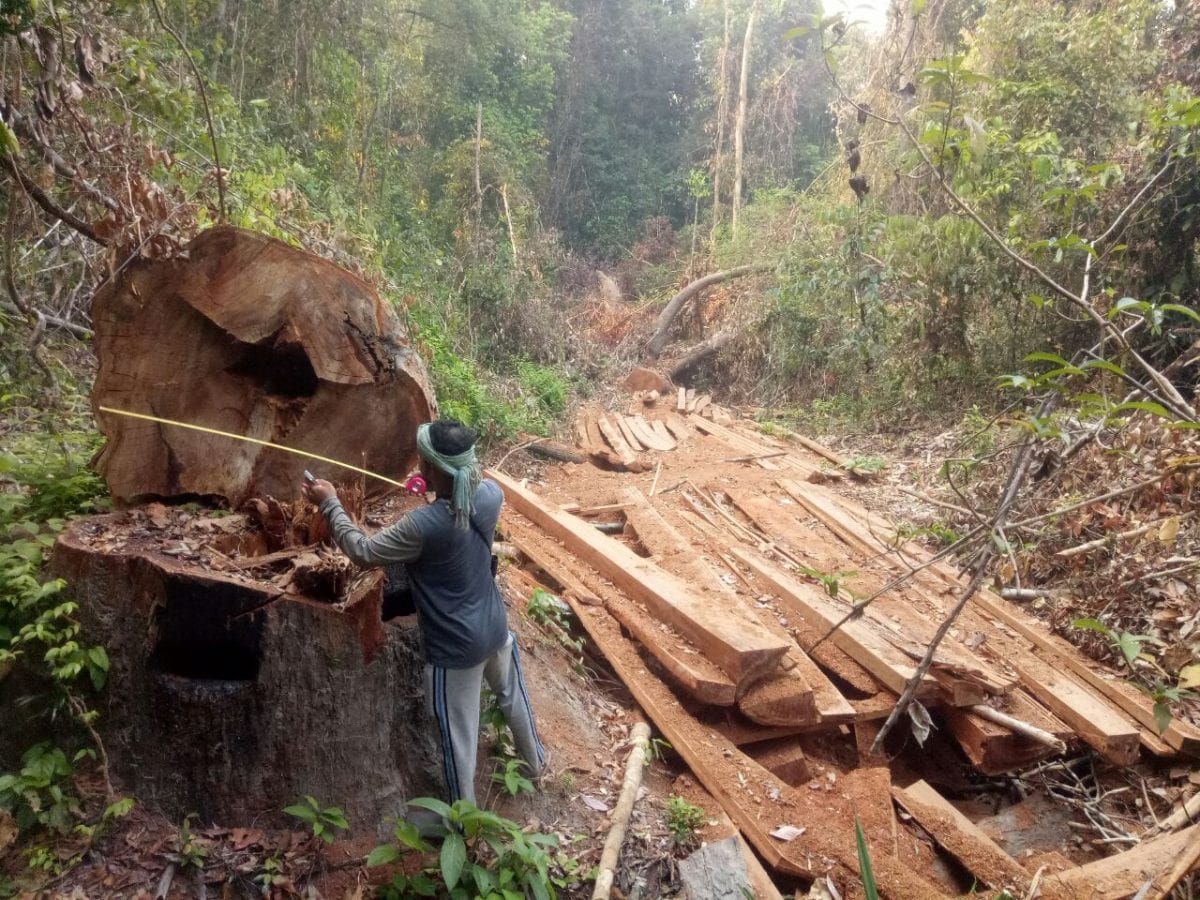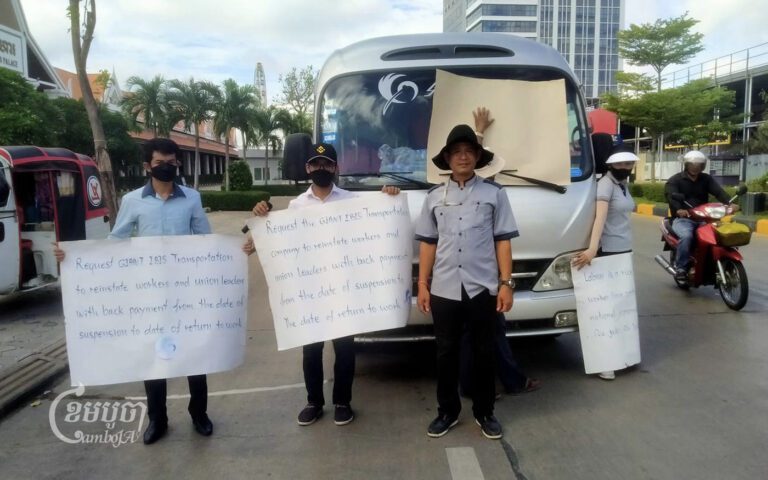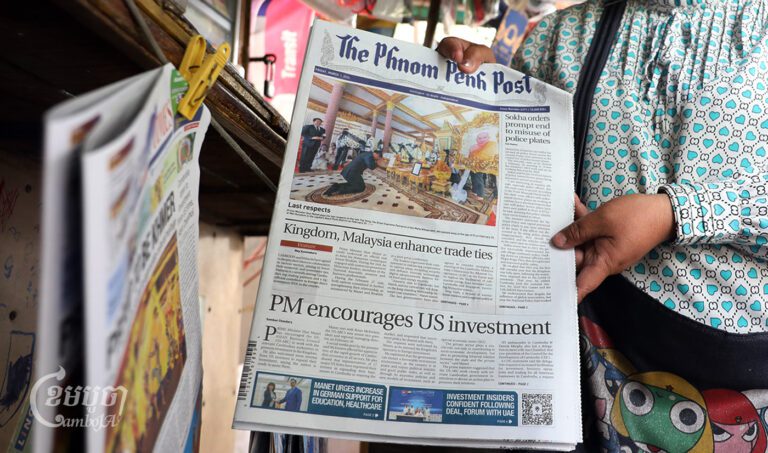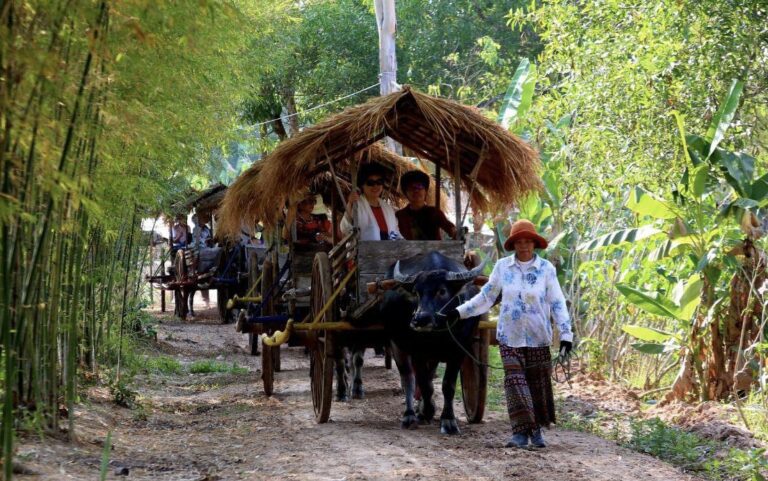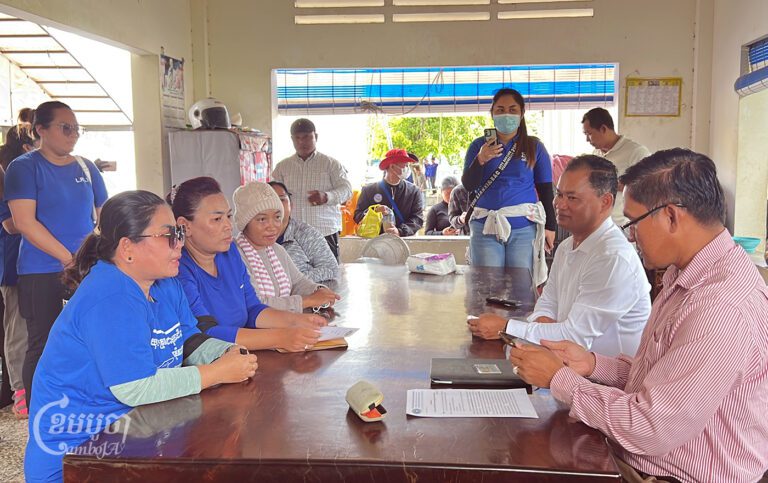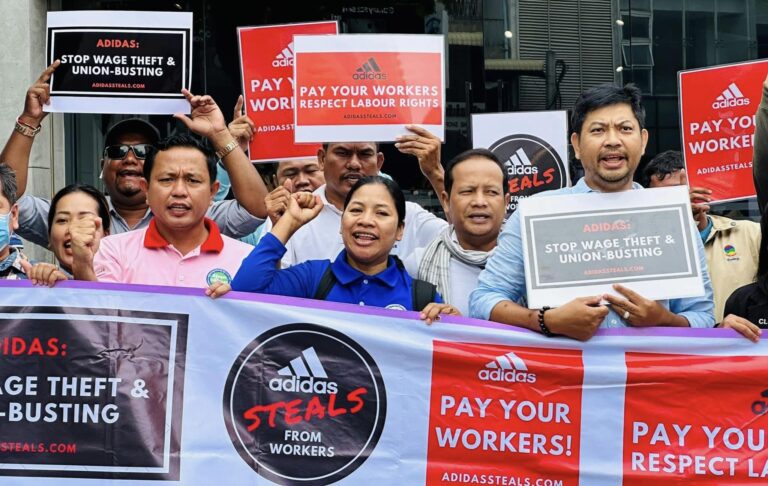Despite the ongoing government efforts to fight amid COVID-19, some workers are still moving freely in restricted areas.
Those would be illegal loggers, whom environmental activists say have remained active in Prey Preah Roka Wildlife Sanctuary in Preah Vihear province. Though activists say the forest is under threat, government officials have denied illicit logging is happening at all.
Advocacy group Cambodian Youth Network (CYN) released a report Tuesday documenting 213 cases of illegal logging observed in the sanctuary during a pair of investigations first conducted March 19-21 and then a week later from March 29-30. The reported logging “has shown a serious threat in forest cover”, CYN stated, and included both rare trees and those with cross-sections as large as 2 meters.
“We are very regretful as big trees have been cut even though those areas are designated as protected,” said Heng Kimhong, CYN research and advocacy program manager. “There is illegal logging using chainsaws but we have never seen this information released in that area.”
The government had officially named Prey Preah Roka as a wildlife sanctuary in 2016, supposedly protecting 90,361 hectares to ensure wildlife conservation and ecological biodiversity.
He believed illegal logging was still happening openly because the Environment Ministry and other authorities have banned forest patrols from environmental activists. Authorities have claimed such local associations and organizations are illegitimate.
According to estimates from advocacy group Global Forest Watch, in the years from 2001-18, Cambodia lost 557,000 hectares of tree cover in protected areas. That represented a 11.7% loss of the total protected area.
In response to the widespread logging of areas officially under state protection, the Cambodian government has mostly acted to restrict civil society groups that voluntarily patrol the forests for signs of illegal activity. A recent report from the Global Initiative Against Transnational Organized Crime, also known as the Global Initiative, also pointed to evidence of direct cooperation between government officials and illegal timber operators, including protection from arrest.
The Global Initiative report also stated Cambodia has suffered some of the highest rates of deforestation of any country since the 1970s — a level that has increased significantly in the past decade.
“We are worried that there is collusion and corruption,” Kimhong said, adding that CYN does not know where the timber has been taken. “There are ranger officials standing by, and yet there are still trees being cut.”
In response to the latest accusations of illegal logging, Environment Ministry spokesman Neth Pheaktra said some civil society groups only use the issue of illegal logging to file reports in order to raise funds from donors.
“What they have found are old cut logs left in the past, and some are resin trees that people have requested legally to use,” Pheaktra said, dismissing the claim of other trees being taken illegally. “This report is worthless for the Environment Ministry to consider because it is just a report seeking funds.”
He said the ministry will use the powers of the law against any person or organizations that are conducting activities in protected areas without permission from authorities.
Heng Kimhong dismissed Pheaktra’s explanation, stating the ministry hadn’t inspected the areas where trees had been cut.
“I don’t know whether Mr. Neth Pheaktra went to inspect the old cut logs while we found recent cutting,” Kimhong said.
Meanwhile, Sut Savon, a 36-year-old resident of a community neighboring the sanctuary, said he’d also seen evidence corroborating the report of illegal logging in Prey Preah Roka.
“When we went to the forest, we saw logs that have been cut in recently, and also the transport of timber by homemade trucks,” he said, adding that the cut logs were carried out of the forest between January and February.
“It has really impacted people’s livelihoods who have been relying on resin trees,” Savon said of the logging. He’d formerly made his own living with resin but had to switch to farming when all the resin trees were cut down.
Savon said he was sorrowful that environmental officials have failed to guard the forest and natural resources even in areas designated as protected.
“I have seen environmental rangers have no measures to protect against illegal logging,” he said.


